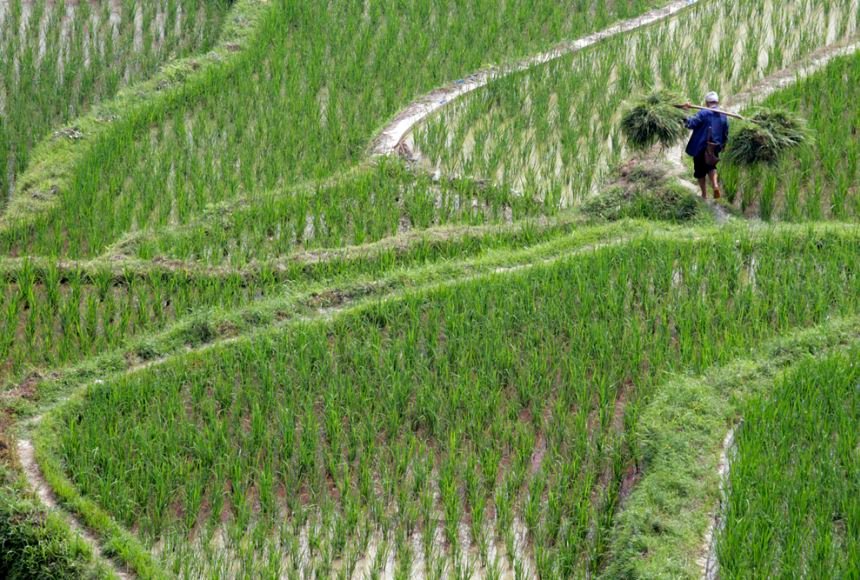Organic or biological farming is probably the best substitute for it. Organic farming is a holistic agricultural approach to cultivating crops.

As we know, health is a supreme blessing, and there is no alternative to it. So, for better health, it’s indispensable to consume healthier food. But, these days, the food that we consume involves the use of many pesticides and fertilisers.
For feeding the whole world’s population, it’s quite appreciable to increase the yield of crops. So, that’s why farmers use different types of pesticides and fertilizers. No doubt these fertilisers and pesticides enhance the yield, but in return, they produce some negative results.
Heavy metals like cadmium, lead, mercury, and uranium are being used in daily agriculture. These chemicals severely disturb the kidneys, lungs, and liver and cause cancer. It also changes the PH and composition of the soil, which ultimately affect the plants.
Organic or biological farming is probably the best substitute for it. Organic farming is a holistic agricultural approach to cultivating crops. Organic farming emphasises using fertilisers of organic origin like green manure, livestock manure, compost, and bio fertilisers rather than chemical fertilisers and pesticides. It also involves some practices like crop rotation, mulching, cover crops, etc.
The ideas behind organic farming were developed in the early 1900s by some scientists such as Sir Albert Howard, F.H. King, Rudolf Steiner, and others who thought that using animal manures, cover crops, crop rotation, and biologically based pest controls led to a more effective farming system.
Components of organic farming:
Green Manure:
Green manure is one of the best practices for organic or biological farming. Firstly, we’ll select the plants, like leguminous, according to our soil. Then, we’ll cultivate and incorporate it into the soil. This practice will add organic matter and nutrients and improve soil structure. It will also reduce the use of synthetic fertilisers.
Livestock manure:
Livestock manure is an essential component of organic farming. It can add vital plant nutrients like nitrogen, potassium, and phosphorous to the soil and hence improve soil quality. It increases soil aggregate stability, water infiltration, and retention. We can add fresh or dried manure.
Compost:
Compost is one of the prime materials used in organic farming. It has a lot of benefits, like enhancing soil structure and health. It is an excellent alternative to fungicides and pesticides. Compost seems to be effective against soil-borne diseases, especially root rot diseases.
Biofertilizers:
Biofertilizers are organic substances containing living organisms that increase soil nutrient availability and encourage plant development. By building advantageous interactions with plants, these microbes support functions including nitrogen fixation and the intake of nutrients.
Nitrogen-fixing bacteria, phosphorus-solubilizing bacteria, and mycorrhizal fungi are examples of these. Because they effectively improve soil quality and plant health, biofertilisers are considered eco-friendly alternatives to synthetic fertilisers.
Practices in organic farming:
Crop rotation:
Crop rotation is a practice in organic farming that involves growing different kinds of crops in the same place, one after the other. This strategy helps the soil stay healthy, counter pests, and prevent different types of diseases.
Mulching:
Mulching involves placing a protective layer of organic materials like straw, leaves, compost, or plant leftovers on the soil around plants. This technique improves soil health, reduces soil compaction, enhances plant growth, and suppresses weeds.
Cover crops:
Cover crops in organic farming refer to plants cultivated mainly to improve soil health and the farming ecosystem rather than for direct harvest purposes. This approach prevents soil erosion, improves soil fertility, enhances biodiversity, and provides other ecological benefits.
Advantages of organic farming:
- Soil Health: Improves soil fertility, structure, and microbial activity.
- No synthetic chemicals: we use only organic substances.
- Climate-friendly: It will cause no hazards to the environment.
- Good for human consumption: It’ll cause no problem because it’s fertilizer-free.
- Less cost: Organic farming is most effective but produces less.
There are many advantages to organic farming to discuss, but these are the main benefits. With the increasing number of diseases that threaten human life, we should switch to organic farming. We can plant some vegetables in our houses by using organic substances.
